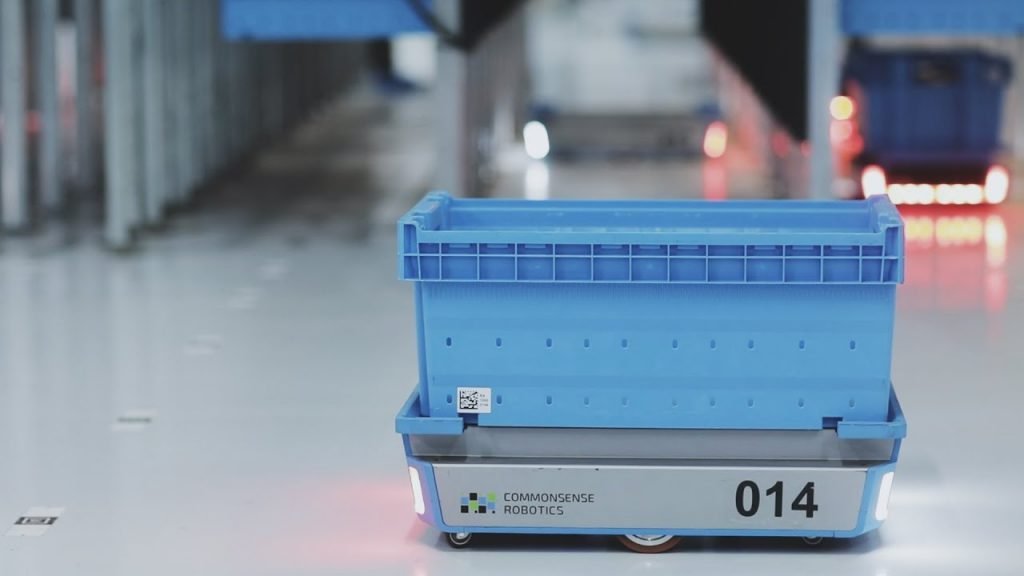Fabric, the US-Israeli warehouse automation logistics startup for retailers formerly known as Commonsense Robotics, announced on Wednesday that it raised $110 million in Series B funding round.
The financing was led by California-based company Corner Ventures, with participation from Israeli VC firm Aleph, the Canada Pension Plan Investment Board, Eric Schmidt’s Innovation Endeavors, La Maison, Playground Ventures, and Singapore’s Temasek Holdings, VentureBeat reported.
Founded in 2015, Fabric developed micro-fulfillment as a logistics solution to combat the challenge of slow and expensive manual fulfillment centers and meet the expectations of e-commerce customers. Fabric has partnered with a number of grocery retailers to fulfill and deliver online orders within one hour.
In July, Venture Beat reported that the company had broken ground on what it claimed would be the world’s first underground automated warehouse, in partnership with one of Israel’s largest grocery chains. The warehouse would be located blocks from Tel Aviv’s Rothschild Boulevard, in a parking structure beneath Shalom Meir Tower. It would measure just 18,000 square feet with an average heigh of 11 feet.
Fabric’s co-founder and CEO Elram Goren said that the new funds are “meant to lay the runway for the startup’s stateside expansion.” The company also aims to grow its US-based commercial operations as well as its technical support and engineering teams in Tel Aviv.
“Our production-proven micro-fulfillment platform is fundamentally changing the face of retail,” said Goren. “Driven by our world-class proprietary technology, we are designing and building an entirely new logistics infrastructure in cities so that on-demand fulfillment and delivery can happen faster, cheaper, and at scale. Whether it’s enabling retailers to profitably fulfill one-hour deliveries or helping businesses restock their storefronts more efficiently, we aim to be the solution that empowers businesses to better serve their customers.”
The company says it will launch a platform model to allow its clients to build private micro-fulfillment centers on their own property.
The company plans to launch micro-fulfillment centers in several cities across the US by 2020. It already has one under construction in New York City and 14 sites currently under contract, Fabric indicated.
The company rebranded last month in hopes of strengthening customer relationships through a new supply chain infrastructure that would enable faster and cheaper on-demand fulfillment, Fabric said in a statement in September
“In becoming Fabric, our vision is finally reflected in our brand,” said Goren at the time. “For us, our robots and software are critical to what we do, but at the end of the day, they’re a means to an end. What we’re really here to do is to be the fabric of the new world of e-commerce: mission-critical on-demand order fulfillment, enabling goods to be fulfilled and delivered faster and cheaper within cities.”
Related posts

Israeli AI Safety Tool Among TIME’S Best Inventions For 2024

Editors’ & Readers’ Choice: 10 Favorite NoCamels Articles

TAU Team Discovers Mechanism To Eliminate Cancerous Tumors




Facebook comments